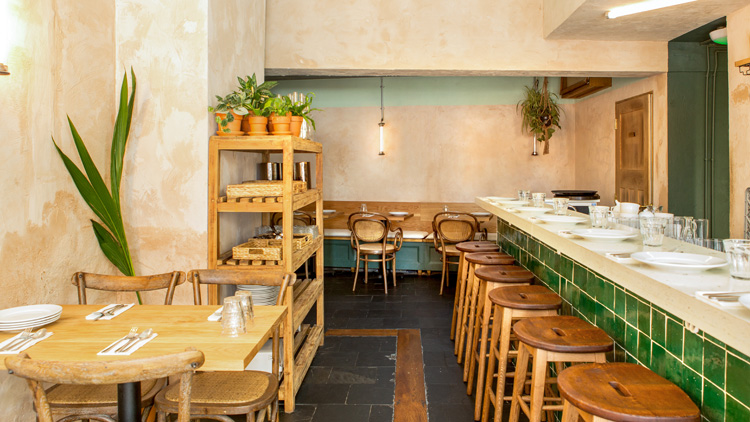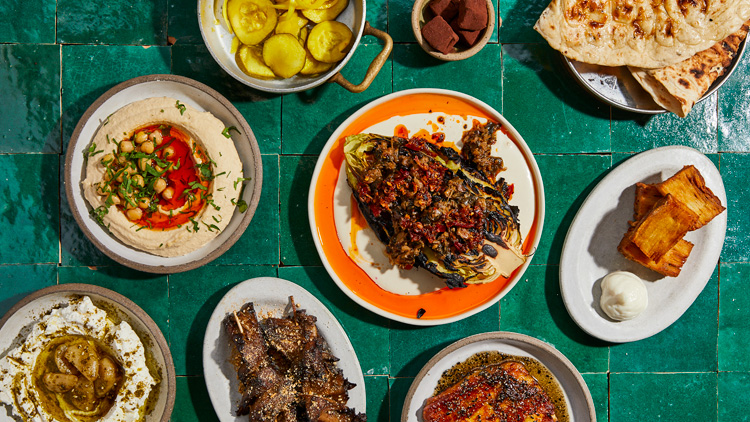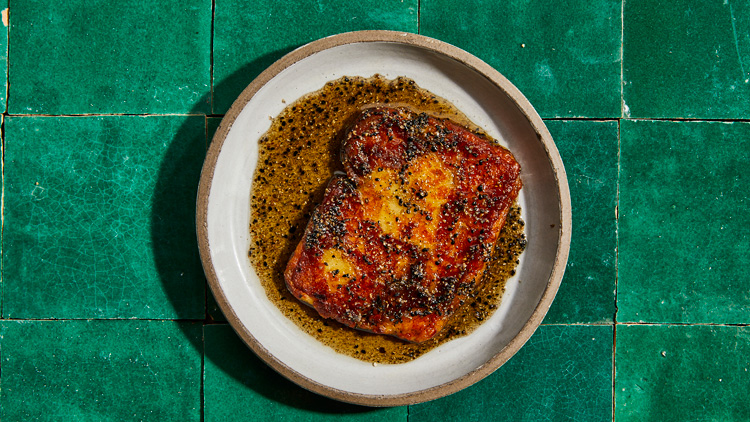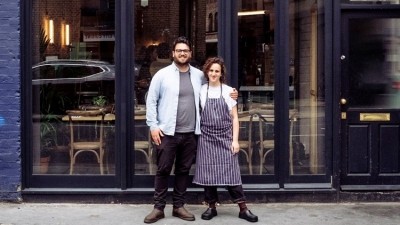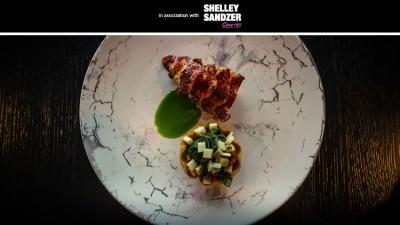Generation Next
Bubala: “Focusing on vegetables has been liberating”
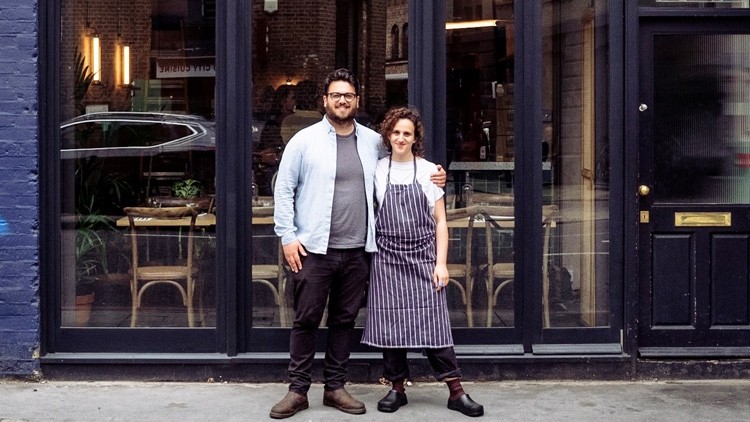
Marc Summers can remember vividly the first time he stood in the Poland Street site in London’s Soho that he will soon launch as the second restaurant under his vegetable-focused Middle Eastern concept, Bubala. “I was 18,” he recalls. “I’d told my dad that I wanted to be a chef, and he had encouraged me to speak to people in the industry before I pursued it as a career.”
At the time, the Soho site was home to long-standing fresh pasta restaurant Vasco & Piero, which has since relocated to nearby D’Arblay Street. Summers’ father knew Paul Matteucci, Vasco & Piero’s owner, and arranged for his son to meet the restaurant’s head chef to find out more about working in the industry. “He basically told me not to do it,” continues Summers, with a chuckle. “And I took his word for it. It wasn’t until I was in my late twenties that I decided to properly pursue becoming a chef.
“When I first stood in that site after signing the lease it was strange. I can still remember exactly where I sat. Opening a restaurant there feels very full circle.”
A completely different beast
We’re sat in the upstairs PDR in Bubala’s original Spitalfields restaurant, which Summers launched back in September 2019 with executive chef Helen Graham. It’s an intimate, and somewhat tight location. The restaurant’s interiors are inspired by Tel Aviv’s modern cafes, with the 30-cover dining room featuring a natural and rustic aesthetic and plenty of plants dotted around the space.
Summers originally established Bubala, the name coming from a Yiddish term of endearment that is said to often be used by grandparents and roughly translates as ‘sweetheart’, in 2018 as a pop-up when he was working as general manager at popular Middle East and North Africa-inspired grill house Berber & Q in Haggerston. “Working there opened my eyes to creativity of what you could do with vegetables, despite it being such a meat-heavy restaurant,” he explains. “The flavour combinations and gentle spicing techniques were a perfect way to showcase vegetarian cooking. It became something I really wanted to explore further.”
A series of supper clubs followed, with Bubala popping up at sites across the capital including Carousel in Marylebone and Untitled in Dalston; and it was during that time that Graham, who had previously cooked at The Palomar and The Barbary, joined the business. “Those early days were a mad and surreal period, but lots of fun,” she recalls. “We did all of the initial food development and experimentation work at Mark’s flat, and that gave us the space to establish the menu format and create the recipes. It’s a good partnership, we understand each other’s palettes and how to make a dish sing.”
Bubala opened in Spitalfields to significant critical acclaim. The Observer’s Jay Rayner called it ‘exuberantly vegetarian’, while Jimi Famurewa of the Evening Standard described it as ‘a rare gift’. “It’s a place of such fizzing cool and poised Israeli cooking that you’re too busy throwing back fig leaf martinis and hauling flatbread through addictive dips to spend much time contemplating the fact that you’ve not had any meat,” he wrote.
Growing the business was always part of the long-term plan for Summers, although he never envisaged being able to secure a site in central London for his second restaurant location. “We were never looking at being a one site concept, but Soho certainly wasn’t the plan for site two,” he says. “Opportunities arose that I don’t think would have happened if it wasn’t for Covid. In the pandemic we had time to think and look, which we hadn’t had before.”
“Soho will have a different feel, but when you walk in it will still unmistakeably be Bubala”
Described as an ‘extension’ of the Spitalfields restaurant, Bubala Soho will hold 50 covers including an eight-seat kitchen counter. The dining area will be more spacious and the menu more expansive, with a greater emphasis on cooking over fire thanks to the restaurant’s yakitori grill.
“We love what we’ve created in Spitalfields,” says Summers. “Soho will have a different feel, but when you walk in it will still unmistakeably be Bubala. It won’t hold many more people, but it’s wider and bigger. Spitalfields is cosy, whereas Soho is more amped up because of the location.”
The move to central London also brings with it the prospect of a much wider market to play with. “We have a lot of people that come [to Spitalfields] from outer London and I think the journey stops them eating here more. Soho is more of a link for them.
“Like Spitalfields, there’s still a lot of office trade around there, but it also has much greater levels of footfall for us to target too and we recognise that. It’s a completely different beast.”
Creative freedom
Curiously, despite Bubala’s meat-free focus, neither Summers nor Graham are vegetarian. “Focusing just on vegetables has been liberating, and goes against people’s expectations,” says Summers. “People said I was limiting myself, but for me it gave more creative freedom.”
Another benefit, he notes, is the restaurants ability to appeal to a broad church of diners. “Anyone can come to Bubala. We have vegetarian and vegan menus, and if you have any kind of allergy you can still eat pretty much anything on the menu. Literally, there is no allergy we can’t cater for; and even though we didn’t do it for that, it’s helped ground it.”
Despite this, though, it hasn’t all been plain sailing. Early on, Summers made a conscious decision not to market Bubala as a vegetarian restaurant. “In our minds it was always just about being a brand that happened to be vegetarian, not defining us as that,” he explains. “Vegetarian isn’t a cuisine, so it feels strange to say that’s what we are.
“We’re focusing on Middle Eastern flavours, which we love, and there just happens to be no meat on the menu. It’s not a big deal, to us.”
For some diners, however, it was a big deal. Graham tells of customers walking out in the early days after discovering there was no meat dishes on the menu, and of guests even going so far as to admonish staff verbally for serving just vegetables. “It was so weird,” she says. “I was getting emails from customers asking if we could order in some chicken to cook for them; or if they could bring a steak with them that we could then prepare.
“We did get a lot of that and it was probably to be expected, but it doesn’t happen anymore.”
Exploring new ideas
Many of Bubala’s signature Spitalfields dishes will feature on the Soho menu, including the halloumi with black seed honey; the hummus with burnt butter and pine nuts; and the confit potato latkes with toum and Aleppo chilli. But the larger kitchen space has given Graham the space to explore new ideas and flavours.
“There’s certainly more scope to experiment with different vegetables, including some we haven’t used before,” she says. They include Chinese cabbage, which will be cooked on the yakitori grill and served with preserved lime and maple as part of a wider selection of skewer dishes, which will also see leeks cooked over the flames and served with an amba sauce. And, of course, the charred oyster mushroom skewer with tamari, coriander seed and agave, a staple of the Spitalfields menu, will feature.
There will also be more pastry dishes, including a dish of Yemeni malawach that’ll be served with stracciatella cheese, kalamata olives and smoked aubergine honey. While Spitalfields now primarily offers only a set menu priced at £38 each, Bubala Soho will principally serve à la carte; although there will also be a set menu option for those who want it.
For diners of a more carnivorous disposition, what really surprises about the food at Bubala the first time you have it is how little you miss the meat; indeed, its absence barely registers. So many of the dishes – like the fried aubergines topped with zhoug and date syrup; and the savoy cabbage with caramelised cauliflower and hazelnut brittle – retain a rich, meaty quality that catches you off guard. “That comes from the ingredients,” says Graham. “We use a lot of tamari and miso in our cooking, which brings out this umami character.
“We have never looked to try a mimic the experience of eating meat. There are no fake meats or plant-based substitutes. There hasn’t been a conversation about how to make the dishes meatier.”
“It helps that we eat meat,” Summers adds. “Neither of us are vegetarians, and when we try dishes, we’re looking for textures and tastes that work for us.” He notes that a lot of the same cooking processes used to prepare meat can be found in the Bubala kitchen. The halloumi, for example, is first seared, finished in the oven and then rested, as a prime piece of beef would in a steakhouse. “Stuff like that makes a difference,” he continues. “And it’s sometimes lost on vegetarian food.”
A brand with more to give
Beyond Soho, Summers is unsure about where Bubala could go next, but he certainly doesn’t see this as the end of the journey. “We chose to open a second Bubala because we had more to do with the brand. The kitchen in Spitalfields is really small and that dictates the menu, but with a larger site we have the scope to do more stuff under that concept.”
During the pandemic, Summers and Graham did launch a delivery-only offshoot called Bubie, which operated out of a dark kitchen in Kentish Town and specialised in laffa sandwiches, with fillings including Yemeni falafel with aubergine, pickled red cabbage, salad, tahini and toum; and mushroom shawarma with marinated and roasted oyster mushrooms, pickled red cabbage, salad, amba and tahini. “That could theoretically be its own thing,” mulls Graham.
“It was a fun chapter, and maybe it’ll come back.”
“We chose to open a second Bubala because we had more to do with the brand”
Summers certainly seems keen to grow the business further, although for now all the focus is on getting the Spitalfields restaurant open. “If you asked me a year ago, I wouldn’t have thought there was any chance of us opening a second site in the near future. The pandemic has taught us that we don’t know what’s going to happen.
“I do see us being able to offer more in the future, though, We’re still a relatively young brand, and there’s much time for new concepts down the road, but right now all of our concentration is on what we have in front of us.”
Staffing struggles
Chief among Summers and Graham’s priorities is building a new kitchen team. Having originally been slated for April, the Soho restaurant is now set to open sometime in July. And while the launch creeps closer, the pair find themselves struggling with staff recruitment; a challenge being faced by restaurateurs across the sector. “A lot of the rhetoric around restaurants during Covid was quite negative, and that needs to change to get people back into the kitchen,” says Summers.
“The pandemic was affecting so many industries, but hospitality was spoken about more than others and because of that people saw how badly affected it was; and that has turned a lot of people off wanting to be a part of it. And with Brexit too, the pool is even smaller. So there needs to be a big effort in changing people’s perceptions of the industry.”
Summers and Graham ensure that staff at Bubala work no more than one double shift a week; have flexible hours; paid birthdays off; and are able to purchase wine at cost price through the company. “We’re really trying make it a job people want that has perks and isn’t just grind, grind, grind,” he continues.
“Our team is so important to our ongoing success. Every time we hire new people, they’re bringing ideas to Bubala and always improving it. That’s the beauty of it. We’re not standing still; we’re not saying this is our concept and how we want to be. Bubala is constantly evolving, and the more people we bring on board is what allows us to do that.”
